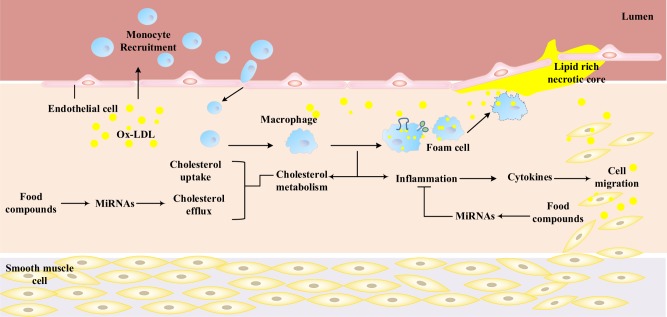Fig. 1.
Roles of monocytes/macrophages in promoting AS and the influence of dietary compounds on macrophages. At the initiation of AS, the damage of the endothelium, which is to a certain extent caused by the accumulation of modified cholesterol (ox-LDL), initiates an immune response recruiting monocytes into the subendothelial space, where these cells differentiate into macrophages. The formed macrophages tend to uptake the ox-LDL unlimitedly and become cholesterol-loaded foam cells. These foam cells accumulate to create fatty streaks, which form the central feature of the early stage during the development of atherosclerotic lesions. Further development of macrophage foam cell formation is promoted by escalating inflammation of macrophages and other immunocytes. Overall, macrophage-related cholesterol metabolism and inflammation are two major factors related to the development of AS. Some food compounds could attenuate AS by increasing cholesterol efflux and inhibiting inflammation via targeting miRNAs. AS, atherosclerosis; ox-LDL, oxidized low-density lipoprotein

